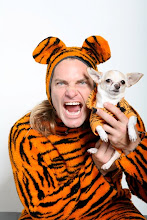In my formative years of media consumption, the Music Television network provided much of the impetus for any interest in mainstream cultural discourse that I might have shared with my peers. In the 90s, MTV’s flash-bang program lineup was fucking irresistible, a flawless amalgam of pop-culture shimmer and glowingly pre-packaged “rock and roll” sass that held infinite appeal for even the most discerning young eyes. I once saw one of their hosts claim off-handedly that MTV programming wasn’t intended to be viewed by children. What a good joke!
Before the screaming idiot-parade of shows like Total Request Live melted the cultural appeal of the network into a lifeless, cynical muck, the flagship of their youth conquest was The Real World, the original model for the reality show—a genre that has, by now, become so prevalent and post-relevant that it’s damn-near folded back on itself. It is a testament to the original calculations of The Real World’s producers that it has largely avoided the black hole of irrelevance that has befallen its offspring. The reason for this, and the beauty of the show’s design, is that it was pointless to begins with—created before the reality show rules were written, The Real World was flying blind, inventing narrative from the loosest strands of petty human interaction. Despite the best efforts of the show’s “writers” to manufacture conflict and change, the whole affair remained thrillingly amoral. I’ve watched almost every episode since the 1999 Hawaii season, and it provided some of the more exciting television moments I witnessed as a young man. The various threesomes and hot-tub-related indiscretions during the Las Vegas season, for example, were understandably compelling viewing for a 13-year-old kid in the suburbs.
MTV has ceased to be exciting on any level. Beyond the obvious complaint that music and comedy have taken a back seat to maximally smutty dating shows and the most monotonous reality bullshit imaginable, the smallest pretense of anti-establishment swagger has been unceremoniously sucked from the network’s soul, and at times it is vaguely indistinguishable from its sickly-sweet cousins Nickelodeon and Disney Channel. But, somehow, against all odds, The Real World remains magically watchable and addictive. It’s not exactly smart or respectable, but the formula of youth and visibility plus alcohol and excess still makes for damn fine television. Meanwhile, its very concept makes it practically immune to criticism. The old and obvious insistence that it doesn’t even resemble our conception of “real” life has never even come close to being relevant: the show’s production style seems to readily admit that its design was always clearly intended as a heightened replica of modern life, a human zoo. And the animals never disappoint.
The new season of the show—its twenty-first—takes place in Brooklyn (seemingly running out of big cities in which to place their cast, the producers recycle New York for the third time, though previous seasons took place in Manhattan) and has a few new gimmicks. Arbitrarily, there are now eight cast members in the house, and for the first time since the mid-90s the roommates won’t be assigned a shared job in the city. Whatever. The more notable addition to the show is that, amongst the usual Abercrombie hardbodies and uber-cute art school pixies in the cast, there is a transwoman, Katelynn. In the premiere episode the others—apart from J.D., the gay roommate with whom she shares a teary declaration of solidarity—fail to seriously raise the subject or, in the case of one amusingly doltish bodybuilder, even realize it, and Katelynn has yet to show signs of becoming an LGBT icon like the famous, HIV-positive Pedro from the San Francisco season. But it will be interesting to see how the show reconciles its experiment in out-there sexual politics with its usual agenda of self-satisfied but passé tolerance.
Apart from their momentary serious aspirations, it seems we’re in for another season of young, beautiful anger and drunken amorousness. But I’m pleasantly reminded at once of how the show’s ambling, directionless pace affords instances of quieter voyeurism. In the premiere, at least, what really makes it for me are the little moments of un-manufacturable, genuine revelation: hipster Mormon Chet’s self-assured dancing around his obvious sexual confusion; fun-loving army vet Ryan’s repressed-trauma-bordering-on-denial; aspiring therapist Sarah’s unconsciously overbearing inquisitiveness. Between the time-warping jump cuts and the pop-up music referrals, The Real World still manages to capture fascinating moments of genuine human inadequacy. In its slow dive into cultural worthlessness, MTV should thank its stars it still has the clout to command something so spontaneously captivating. They couldn’t make this shit up if they tried.
Subscribe to:
Post Comments (Atom)

Janet from Seattle's father owns the "Red Dragon" a Chinese restaurant in my hometown.
ReplyDelete